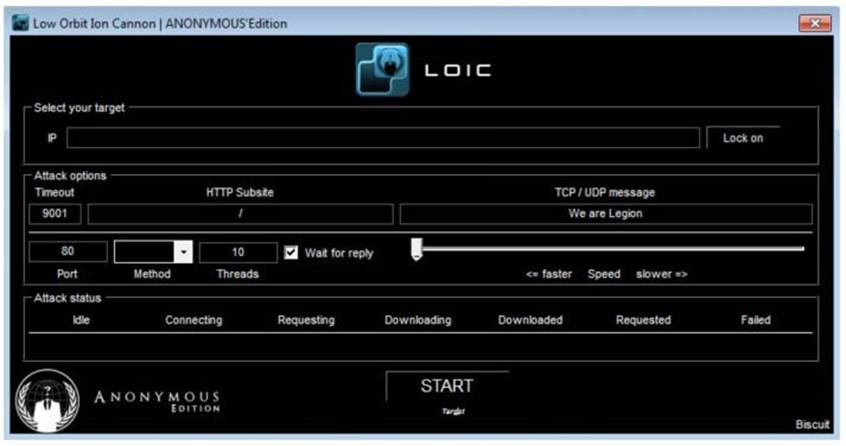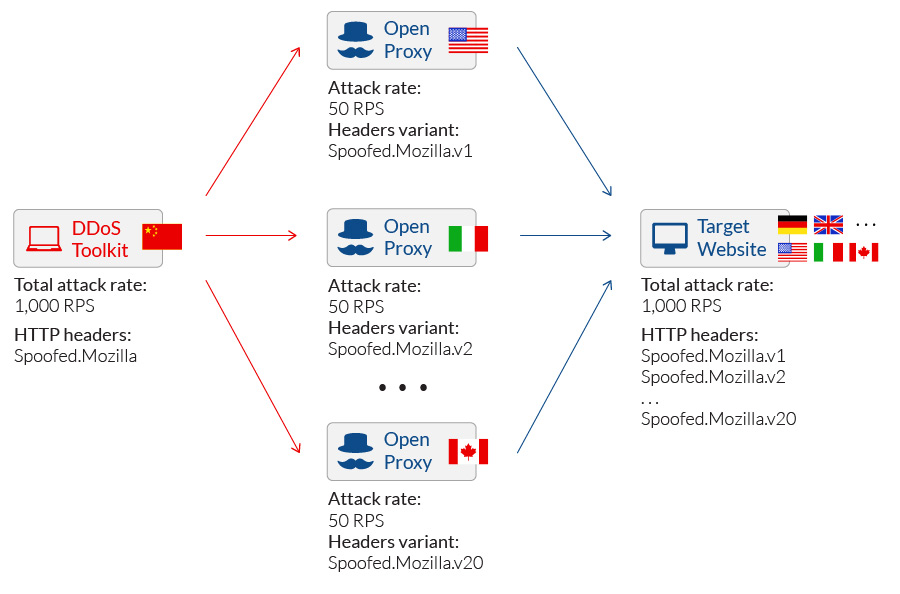

- #DDOS ATTACK TOOL FOR WINDOWS ANONYMOUS SOFTWARE#
- #DDOS ATTACK TOOL FOR WINDOWS ANONYMOUS SERIES#
- #DDOS ATTACK TOOL FOR WINDOWS ANONYMOUS FREE#
This group of loosely affiliated hackers from around the world banded together to attack organizations they felt were in the wrong.

The most notable example has been from a group called Anonymous. Hacktivists can be motivated by political views, cultural/religious beliefs, national pride, or terrorist ideology. Jason Andress, Steve Winterfeld, in Cyber Warfare (Second Edition), 2014 Hacktivist Nearly any issue that we can find supported or attacked by activist groups, protesters, and the like will have some element of hacktivist support, even if it is not an overt one.
#DDOS ATTACK TOOL FOR WINDOWS ANONYMOUS FREE#
Causes that are supported by hacktivists can be nearly endless, but may include such topics as free speech, civil rights, religious rights, and so on. The motivation of the hacktivist is almost entirely politically or religiously oriented in some fashion, and focused on influencing opinions on the particular issue in question. Anonymous claimed to have launched the attack due to the attempts of the Australian government to introduce a mandatory Internet filtering service for the entire country. In February of 2010, a group known as Anonymous, well known for similar attacks, launched a DDoS attack against the website of an Australian senator, as well as the Australian Parliament House. The tools of the hacktivist can include website defacement, mass emailing, Denial of Service (DoS) or Distributed Denial of Service (DDoS) attacks, Domain Name Service (DNS) hijacking, or any of a number of other methods. One relatively well-known work on the subject, Hacktivism and the Future of Political Participation, defines hactivism as “the nonviolent use of illegal or legally ambiguous digital tools in pursuit of political ends”. Hacktivists are, in essence, hackers that use their skills to support a particular point of view. Jason Andress, Steve Winterfeld, in Cyber Warfare (Second Edition), 2014 Hacktivists 1.3 illustrates the stages of a hacktivist campaign. In this writer’s experience of protecting organizations, hacktivists tend to attack in waves and the attacks continue for a period ranging from a few days to several weeks, sometimes long after a campaign was originally reported to end. At the end of a cyber operation, the hacktivists disband until they are recruited for a future cyber campaign. The attack is then carried out typically including the theft of sensitive information or disrupting business operations. Once recruiting is complete, the operation begins and hacktivists perform several types of reconnaissance to identify targets and weaknesses that can be exploited within targeted organizations. Hacktivists typically announce upcoming attacks in advance with the goal of recruiting fellow hacktivists and raising media attention on the political cause they are supporting.
#DDOS ATTACK TOOL FOR WINDOWS ANONYMOUS SOFTWARE#
A DDoS attack is launched from multiple computers running specialized software that generates a large amount of traffic directed to a website with the intent of overwhelming the system so that it stops responding to legitimate user requests.
#DDOS ATTACK TOOL FOR WINDOWS ANONYMOUS SERIES#
Among the best known hacktivist groups is “Anonymous,” which has carried out hundreds of cyber attacks including Operation Payback, 8 which included a series of Distributed Denial of Service (DDoS) attacks that disrupted victims’ websites, preventing legitimate users from accessing them. At the time of this writing there are over 80 different hacktivist groups in existence. One law firm fell victim to a cyber attack from a hacktivist group due to the law firm’s representation of a client linked to a high-profile legal case 7 the hacktivist group stole emails from the law firm, many of which were protected under attorney-client privilege and publicly posted them on the internet. In some cases hacktivists have targeted organizations not based on the victim organization’s beliefs but the clients and partners they do business with. Hacktivists typically target entire industries but sometimes attack specific organizations who they feel don’t align with their political views or practices. Hacktivists are groups of criminals who unite to carry out cyber attacks in support of political causes.


 0 kommentar(er)
0 kommentar(er)
